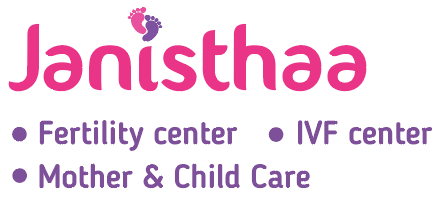You might spend hours reading message boards to learn about early pregnancy signs or scour the Internet to learn about ways to optimize your fertility. You go into the second month even more hopeful than ever. Another negative test. Months go by and you may begin to worry that something is wrong. You also know that it’s common for pregnancy to take up to a year, and even to have a miscarriage.
So when should you see an infertility specialist? Here’s what you need to know about making the decision.
Why You Need an Infertility Specialist
If you had an infectious disease, you’d see an infectious disease specialist. If you had cancer, you’d want a cancer doctor, and wouldn’t expect your general practitioner to treat it. Yet all too often, people think they don’t need an infertility specialist. They think their obstetrician or primary care physician can treat their infertility. Or they avoid treatment altogether.
Infertility specialists are more equipped to treat infertility than your family doctor. Infertility is a complex medical issue with many potential causes. Even if you already have a diagnosis, that diagnosis might not be the sole reason for your infertility. So getting a comprehensive workup from someone who knows fertility medicine is key.
Some people with fertility issues see an appointment with an infertility specialist as giving up. They worry that by seeking treatment, they’re admitting a problem and that somehow doing so will make the problem worse. Don’t fall for this line of thinking. If you’ve tried for a long time to get pregnant and it hasn’t worked, something is wrong. The sooner you find out, the sooner you can become a parent. Infertility is treatable, but prompt treatment can mean the difference between becoming a parent and continuing to struggle.
Also, Read WHY REPEATED IVF FAILURE HAPPENS?
So when should you see an infertility specialist? We recommend seeking help in the following situations:
- The woman is under the age of 35, and the couple has tried for longer than a year to get pregnant. This is because the chances of pregnancy with well-timed intercourse is about 1 in 4 each month. A year offers plenty of time for healthy couples to get pregnant.
- The woman is over the age of 35, and the couple has tried for longer than six months to get pregnant. Six months is enough time for most people to get pregnant. After 35, it can take a little longer. However, waiting too long can run out your fertility clock. Fertility begins gradually declining after 35, and dramatically declining after 40. So every month you spend waiting is a month of lost fertility potential.
- The woman is over the age of 40 and planning to try to become pregnant.
- You’ve been able to get pregnant, but have had a miscarriage, and have then tried for another six months without a successful pregnancy.
Also, Read MY JOURNEY FROM INFERTILITY TO MOTHERHOOD
You’ll notice that each of these scenarios looks at the woman’s age, not the man’s. While male fertility does decline with age, women are born with as many eggs as they will ever have. So women’s fertility declines more rapidly and eventually ends altogether. Some women also have a condition that causes premature egg death, significantly reducing the chances of fertility. Ultimately, the woman’s age is far more important than the man’s. When the man is over 45, however, we recommend fertility counseling before trying to get pregnant.
Also, Read TRYING TO CONCEIVE? STAY AWAY FROM THESE EVERYDAY ITEMS TO AVOID INFERTILITY
It is therefore important that such procedures are performed by experts and a team of caring staff in a fertility clinic like the Janisthaa Fertility Clinic at Basaveshwarnagar, Bengaluru. The clinic has a dedicated team of top-notch doctors who have record success rates. Moreover, treatments provided are 100% personalized, patient-centric with state of the art research and IVF facilities. For more information, visit the website http://jnaistha.local/ or call +91 7619198082 to book online consultation or to clarify more information.

